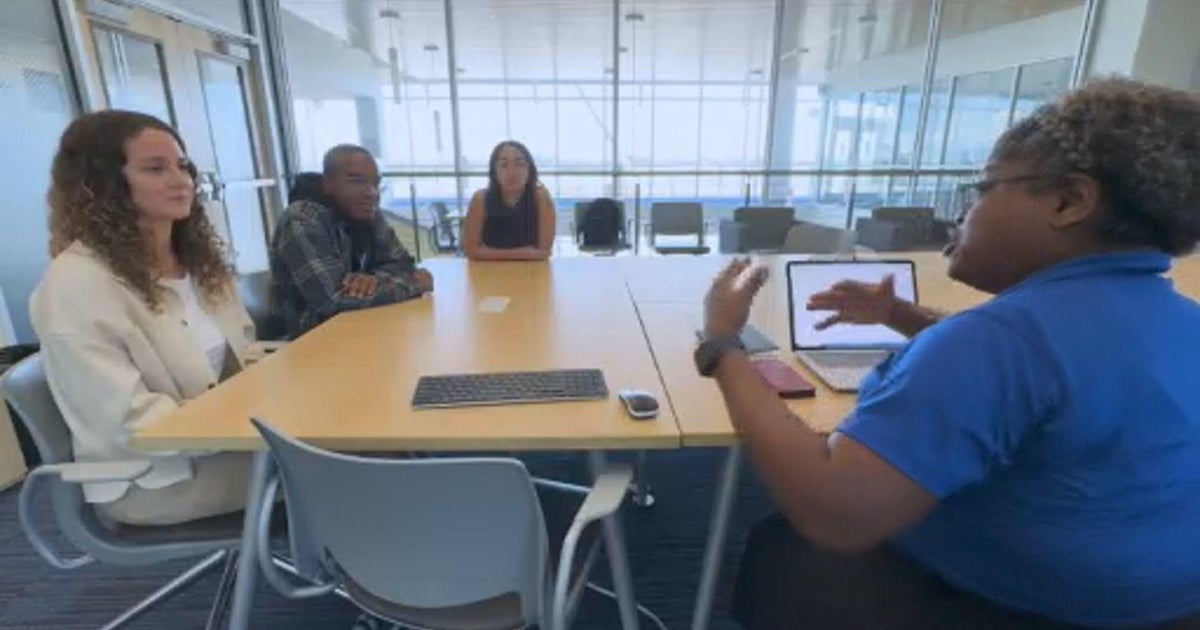Families Challenge Children's Removal From Specialized Medical Care
Follow CBSMIAMI.COM: Facebook | Twitter
TALLAHASSEE (CBSMiami/NSF) - The families of four Florida children with special health-care needs have filed a challenge to a new state process that removed them from a program providing services to medically fragile kids.
On Thursday, attorneys for the families filed an administrative challenge to the Florida Department of Health's process, contending that the agency has been screening youngsters out of the Children's Medical Services Network without accepting public input or following other rule-making requirements.
"They were kicked out of the program with no due process," said attorney Matt Dietz of Disability Independence Group, Inc., which advocates for people with disabilities.
Department of Health spokeswoman Tiffany Cowie said that, as of Friday afternoon, the agency had not yet been served the petition by Dietz and Paolo Annino of the Public Interest Law Center at Florida State University.
"In addition, it is department policy not to comment on pending litigation," Cowie wrote in an email.
The rule challenge centers on the new eligibility screening tool that DOH is using to evaluate whether children still qualify for the Children's Medical Services Network, a program for kids with severe and chronic illnesses.
Since May 1, the Department of Health has been re-screening kids enrolled in the program. As of May 20, the agency had found that 2,065 youngsters of 7,427 screened were no longer "clinically eligible" for the program. The screening is scheduled to continue through July 31 and is expected to include more than 60,000 children in the network and other programs.
During the three-month re-screening period, almost all new applicants for coverage are being directed to Medicaid managed-care plans, as are the children who were re-screened and found to be ineligible for the CMS Network under the new criteria.
Dietz calls the screening tool "an end-run through the process to transfer kids from the CMS Network to the managed-care system."
Some critics of the screening process say the CMS Network does more to help families struggling with severe and chronic illnesses than Medicaid managed-care plans.
The Department of Health has disputed such criticisms since the re-screening process began. In information offered to CMS providers, it explained the agency's reasons for the mass screening.
"We want to ensure we are reaching the intended population in the most expeditious way possible," the department said. "The goal will remain to provide quality care and needed care coordination services throughout this process."
The petition filed Thursday seeks the reinstatement of all children in the network until DOH puts the new eligibility screening tool through a standard rulemaking process with public input.
"The petitioners' medical professionals, primary care doctors and specialists were given no opportunity to provide input on the appropriateness of these children screening out of (the Children's Medical Services Network)," says the petition. "They were simply notified after the fact. Additionally, petitioners taken off CMSN were not offered any recourse or appeal process. They were not notified of their right to appeal the termination of CMSN benefits."
The petition is based on the cases of four children who were found ineligible based on the new screening tool. For instance, one of them, L.R., has "severe and chronic hives which keep her out of school and in the hospital as often as 20 days a month," according to the petition, along with a leaking heart valve.
However, based on a screening phone call from a Children's Medical Services caseworker, L.R. was deemed ineligible for the program. Her mother "answered the five yes or no questions to the best of her ability, but did not fully understand the questions. At the end of the call, (she) was told that L.R. was no longer eligible for CMSN services," according to the filing.
Another child represented in the petition, known as Y.S., has "severe visual impairments" and is at risk for blindness. "English is the mother's second language," the filing says. "The mother had difficulty understanding and answering the questions during the screening."
The screening tool asks, for example, "Does your child have any kind of emotional, developmental or behavioral problem for which he or she needs to get treatment of counseling?"
"These are questions that are better suited for providers, and not a parent or caregiver," Dietz said.
"The News Service of Florida's Margie Menzel contributed to this report."



